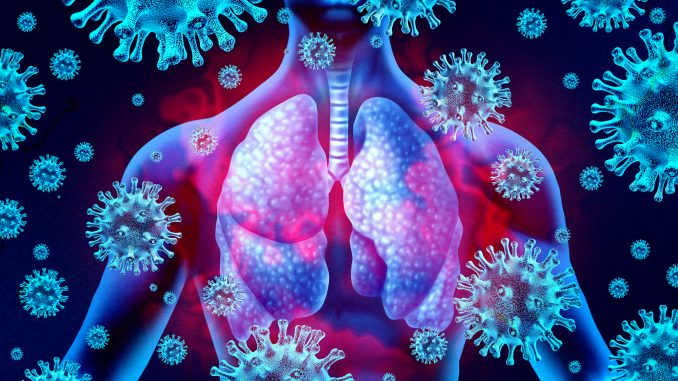
In News
A new research shows the long-term health risks of COVID-19.
In-Detail
- A new research shows that patients who survived from COVID-19 are now suffering from long-term health issues.
- For the first few months of the pandemic, doctors were devoted to preventing the transmission and how to take care of the patients in the hospital. But attention was not paid to the after effects of the disease.
- SARS-CoV-2 is essentially a virus that hits the lungs in a smaller subset.
- Now it seems to have an impact on lungs, brain, heart and increasing the risk of long-term health issues and life-threatening complications.
- Some people who had mild versions of the disease continue to experience symptoms after their initial recovery.
- People who tested positive but were asymptomatic during their disease are not immune to long term effects.
- Researchers from China said that CT scans done in the asymptomatic people revealed abnormal radiological findings in one lung in 66.7% of the asymptomatic people and abnormalities in both lungs in 33.3% on them.
- Senior citizens and people with co-morbidities are more likely to suffer long-term effects.
- Children and young adults who had milder versions of the diseases are reporting symptoms.
- The WHO mentions a telephonic survey of symptomatic adults: 35% had not returned to their usual state of health after 2-3 weeks of testing.
- 20% of those in the 18-34 years age group, whowere in good health, reported that some symptoms were prolonged.
- Countries are now realizing the importance of assessing the long-term impact and exploring solutions to rectify the damage.
- One such project is the UK’s PHOSP (post hospitalization) COVID project is a global project- to study patients who have been hospitalized with COVID-19.
- To gain a comprehensive picture of the impact of COVID-19,the project team will track clinical assessments of 10,000 patients and will develop new strategies to improve long-term health.
Complications of COVID-19
- The Vaccine Research Group, Mayo Clinic, US said COVID-19 has several mysterious compared to a normal respiratory virus.
- There is a diminution of immunity, head-aches, long-term fatigue and difficulty with cognition, vertigo and cardio-respiratory fitness.
- This disease can cause cellular level damage.
- The most common symptoms are fatigue, shortness of breathing, cough, headache, joint and muscle pain.
- Doctors who recovered from COVID-19 in Chennai complained about chronic fatigue, muscles pain and weakness.
- The organs that may affect by COVID-19 includes
- Heart- Damage to the heart muscles even in those with mild symptoms, increasing the risk of heart failure or heart complications.
- Lungs- long-standing damage to the air sacs, leading to long-term breathing problems.
- Brain– seizures, strokes and Guillain-Barre syndrome which causes temporary paralysis and risk of developing Parkinson’s and Alzheimer’s disease.
- Blood– clumping up of blood cells and forming clots. Large clots can cause heart attacks and strokes. The heart damage caused by the COVID-19 is stemmed from small clots that block capillaries in the heart muscle. Such clots can affect other organs like the lungs, legs, liver, and kidneys.
- Mood disorders- development of post-traumatic stress disorder, depression and anxiety.

Leave a Reply
You must be logged in to post a comment.